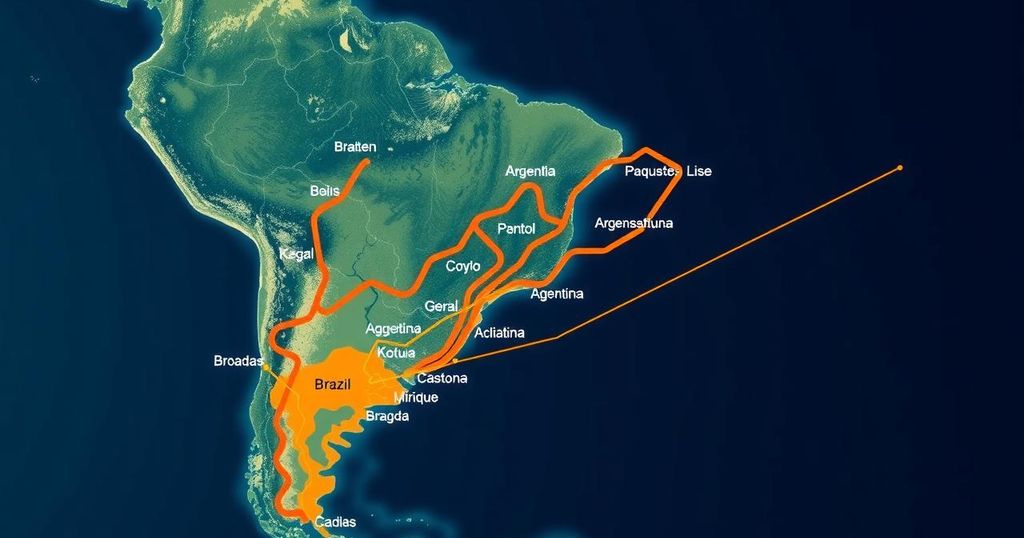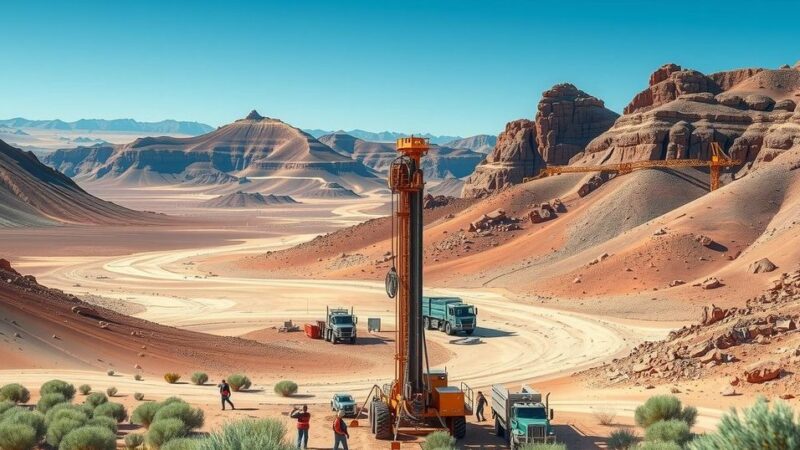Brazil is progressing with plans to import natural gas from Argentina’s Vaca Muerta, aiming for 30 million cubic meters daily by 2030. A memorandum of understanding was signed to facilitate this process, creating a joint working group. Despite political tensions, both nations are pursuing this agreement to boost industrial growth and leverage Argentina’s vast gas reserves to enhance bilateral trade.
Brazil is advancing its strategy to import natural gas from Argentina’s Vaca Muerta formation, signifying that commercial agreements can transcend their intricate political dynamics. On Monday, Brazil’s Energy Ministry formalized a memorandum of understanding with Argentina, aimed at identifying essential infrastructure to enhance natural gas supply. By 2030, Brazil anticipates importing up to 30 million cubic meters of natural gas daily, forming a crucial component of its broader objective to stimulate industrial growth. Notably, this agreement underscores the capacity for business transactions between Brazil and Argentina to progress notwithstanding the challenging political landscape. Argentine President Javier Milei has publicly contended with Brazilian President Luiz Inácio Lula da Silva, particularly following Lula’s involvement in supporting Milei’s political opponent. Amidst these tensions, the memorandum establishes a bilateral working group to delineate the measures necessary for economically facilitating the importation of Argentine gas to Brazil. The arrangement is projected to allow Brazil to import two million cubic meters of gas daily from Argentina’s Neuquén and Río Negro provinces by early next year, escalating to ten million cubic meters within three years. Brazil believes the cost of gas from Vaca Muerta could be approximately half of the prevailing average price of $14 per BTU. Initially, the existing pipeline through Bolivia will be utilized for transportation, albeit logistical costs remain a critical concern, given Bolivia’s diminished gas output in recent times. Exploration of additional transportation alternatives, including new pipelines through Argentina or Paraguay and liquefied natural gas shipments from Argentine facilities to Brazil’s coastal terminals, is ongoing, with responses from Argentina’s Energy Secretariat pending.
The proposed importation of natural gas from Argentina to Brazil highlights the economic interdependence and cooperative potential between both nations, despite underlying political tensions. Vaca Muerta, a significant natural gas formation, serves as a potential resource for Brazil as it seeks to enhance its industrial capabilities. The historical intricacies of energy supply in South America have, in the past, been influenced by various political agendas, yet the current business-oriented approach aims to sidestep such issues in favor of mutual economic benefit. As Argentina faces the need to find markets for its abundant gas reserves, Brazil’s decision to pursue imports indicates a strategic alignment that could bolster economic growth in both countries. The focus on infrastructure to facilitate this trade symbolizes an important step towards energy security and economic cooperation in the region.
In conclusion, Brazil’s decision to import natural gas from Argentina’s Vaca Muerta formation represents a pivotal development in bilateral relations, mitigating political discord through economic collaboration. The memorandum of understanding signed by both nations aims to create a framework for increasing gas supplies, with significant expectations for future imports. This movement not only promises potential cost savings but also underscores the growing significance of energy partnerships in the South American context.
Original Source: www.batimes.com.ar






